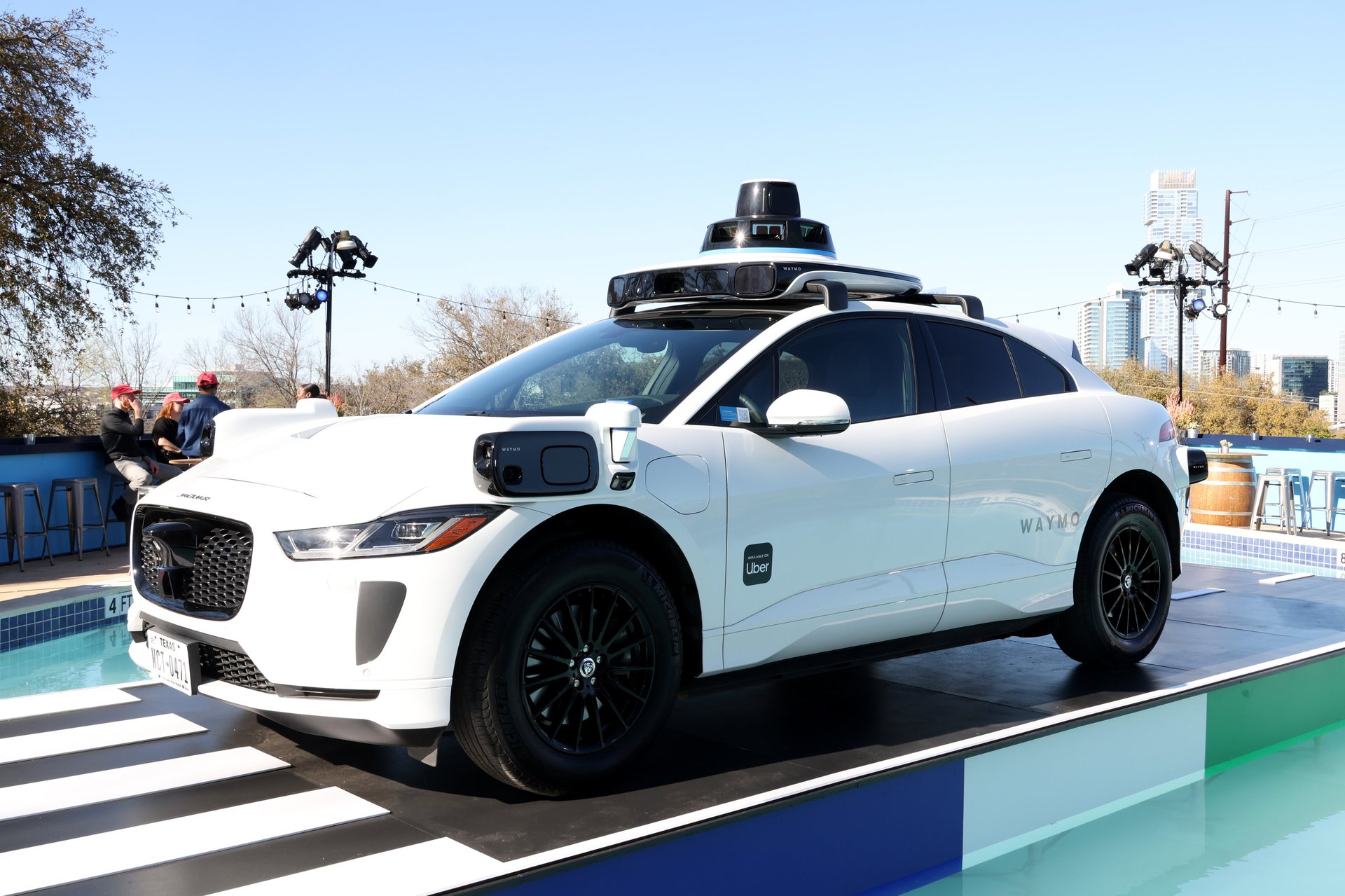Google's Waymo is getting ready to put a lot more robotaxis on the street
The company hopes its Arizona facility could assemble tens of thousands of autonomous vehicles a year

Waymo (GOOGL), the self-driving car division of Google parent Alphabet, is preparing to scale up its manufacturing facility in the Phoenix suburb of Mesa, Arizona.
Suggested Reading
At the new plant, Waymo is transforming 2,000 Jaguar I-PACEs into robotaxis it plans to unleash on the streets of Phoenix, San Francisco, Los Angeles, and Austin, where Waymo currently runs North America’s only self-driving taxi services, the company said in a blog post Monday.
Related Content
Waymo will add fleets in Atlanta, Miami, and Washington, D.C., within the next 18 months.
The plant is being built with Canadian auto parts manufacturer Magna (MGA), who assembled the SUVs in Austria.
Waymo bought 20,000 Jaguar I-PACEs in 2018, two years before it put its first robotaxi on the streets of Phoenix. Outfitting each one of them with Waymo technology costs about $100,000, co-CEO Dmitri Dolgov told The Road Ahead podcast in February. I-PACEs retailed for around $73,000,
But in December 2024, Jaguar discontinued the luxury electric vehicle; the new plant will retrofit the thousands of I-PACEs Waymo already had. Waymo also plans to start purchasing two cheaper vehicles: Hyundai Ioniq 5 hatchbacks, produced in a suburb of Savannah, Georgia, and small vans from Zeekr. The latter, a Chinese brand, could prove to be problematic with the onset of heavy tariffs.
“When the facility is operating at full capacity, it will be capable of building tens of thousands of fully autonomous Waymo vehicles per year,” the company said in the post.
The Mesa development replaces a Detroit facility, also co-run by Waymo and Magna, which closed last year. The new 239,000-square-foot plant promises to create hundreds of jobs in Arizona, winning praise from Governor Katie Hobbs, who said it would “help Arizona’s tech economy continue to rise on the world stage.”
Expansion possibility
Waymo says it has 250,000 paid trips each week in the four cities it currently operates. Forbes estimates that by the time Waymo’s operational fleet rises to 10,000 vehicles, the company “could be booking 250,000 rides a day. That’s well over 1.5 million a week. At that scale, Waymo’s annual revenue could jump to $2 billion, up from a Forbes estimate of $100 million last year.”
Tesla (TSLA), which has promised for years that its robotaxi service is be imminent, recently claimed it would finally launch on the streets of Austin in June. GM’s (GM) Cruise dropped out of the market last December, and its technology is now being directed toward advanced driver assistance.
Waymo was launched in 2009 before being acquired by Alphabet in 2016. It raised $11 billion in three rounds of funding. And yet a series of setbacks cast doubts on the technological and viability of the company, as time marched on and billions were spent.
On last month’s Q1 earnings call, Alphabet CEO Sundar Pichai hinted that Waymo will partner with Toyota (TM) to use its technology in private vehicles. That, along with promising signs of growth, prompted a query about the autonomous vehicle division: “This is probably the first question I’ve got on an earnings call on Waymo,” said a surprised Pichai. “It’s a sign of its progress.”